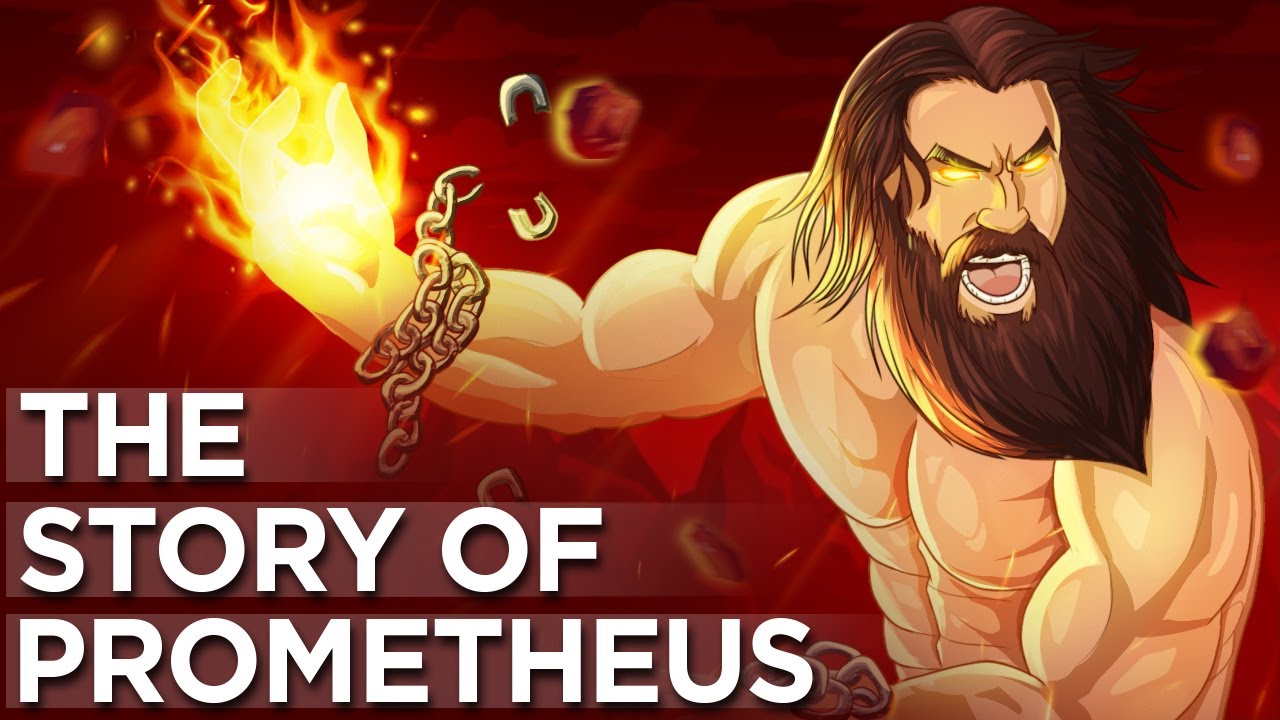In the pantheon of Greek mythology, Prometheus stands as a figure both revered and condemned, a symbol of enlightenment and rebellion. His name, derived from Greek roots meaning “forethought,” encapsulates his pivotal role in shaping the destiny of humanity. Prometheus is a titan whose story embodies the eternal struggle between gods and mortals, and his daring actions have left an indelible mark on the tapestry of human history and imagination.
The Myth of Prometheus:
Prometheus, son of the Titan Iapetus and the Oceanid Clymene, was born into a world of cosmic strife. Titans, powerful deities preceding the Olympian gods, waged war against Zeus and his siblings, seeking dominion over the cosmos. In this turbulent era, Prometheus emerged as a figure of ingenuity and defiance.
One of the most enduring tales surrounding Prometheus revolves around his act of benevolence towards humanity. According to myth, Zeus, the ruler of the gods, sought to limit mortal potential by withholding the gift of fire, a symbol of knowledge and civilization. In an act of audacious rebellion, Prometheus defied Zeus’s decree and stole fire from Olympus, bestowing it upon humanity. This selfless act catalyzed human progress, empowering them to harness the elements, cook food, and forge tools, marking the dawn of civilization.
However, Zeus, furious at Prometheus’s audacity, devised a punishment befitting his defiance. Prometheus was bound to a rock, condemned to suffer eternally as an eagle feasted upon his regenerating liver each day, a torment that would last until the end of time. Despite this agonizing fate, Prometheus remained steadfast, a defiant symbol of resilience and enlightenment.
Prometheus as a Cultural Icon:
The myth of Prometheus has transcended the boundaries of ancient Greece, permeating cultures across the globe and inspiring countless works of art, literature, and philosophy. From Aeschylus’s tragic play “Prometheus Bound” to Mary Shelley’s seminal novel “Frankenstein,” Prometheus has served as a potent symbol of human ambition and the pursuit of knowledge.
In art, Prometheus is often depicted as a noble figure, his features wrought with determination and intellect. His theft of fire symbolizes the triumph of reason over tyranny, a timeless allegory that continues to resonate with audiences today. From classical sculptures to modern paintings, artists have sought to capture Prometheus’s enduring defiance and the eternal struggle for enlightenment.
Prometheus’s legacy extends beyond the realms of art and literature, permeating scientific discourse and philosophical inquiry. His act of bringing fire to humanity serves as a metaphor for the quest for knowledge and the transformative power of discovery. Like Prometheus, scientists and scholars throughout history have sought to challenge the status quo, pushing the boundaries of human understanding and igniting the flames of progress.
Moreover, Prometheus’s defiance of divine authority raises profound questions about the nature of free will and the pursuit of autonomy. His rebellion against Zeus’s tyranny embodies the eternal struggle for individual sovereignty, a theme that resonates with movements for social justice and political liberation.
Prometheus Today:
In an age defined by technological advancement and social upheaval, the myth of Prometheus retains its relevance and resonance. As humanity grapples with existential challenges and ethical dilemmas, the figure of Prometheus serves as a potent reminder of the power of human agency and the enduring quest for enlightenment.
In the realm of science and technology, the Promethean spirit continues to drive innovation and discovery. From the exploration of space to the development of artificial intelligence, humanity has continued to push the boundaries of knowledge and harness the forces of nature for the betterment of society.
However, the myth of Prometheus also serves as a cautionary tale, reminding us of the consequences of unchecked ambition and hubris. Like Prometheus, humanity must grapple with the ethical implications of our actions and strive to wield our newfound powers responsibly.
Conclusion:
Prometheus, the mythical titan who stole fire from the gods, stands as a timeless symbol of human aspiration and defiance. His story embodies the eternal struggle for knowledge and autonomy, serving as a source of inspiration for generations of artists, thinkers, and innovators. As we navigate the complexities of the modern world, the myth of Prometheus reminds us of the enduring power of human agency and the transformative potential of enlightenment.

